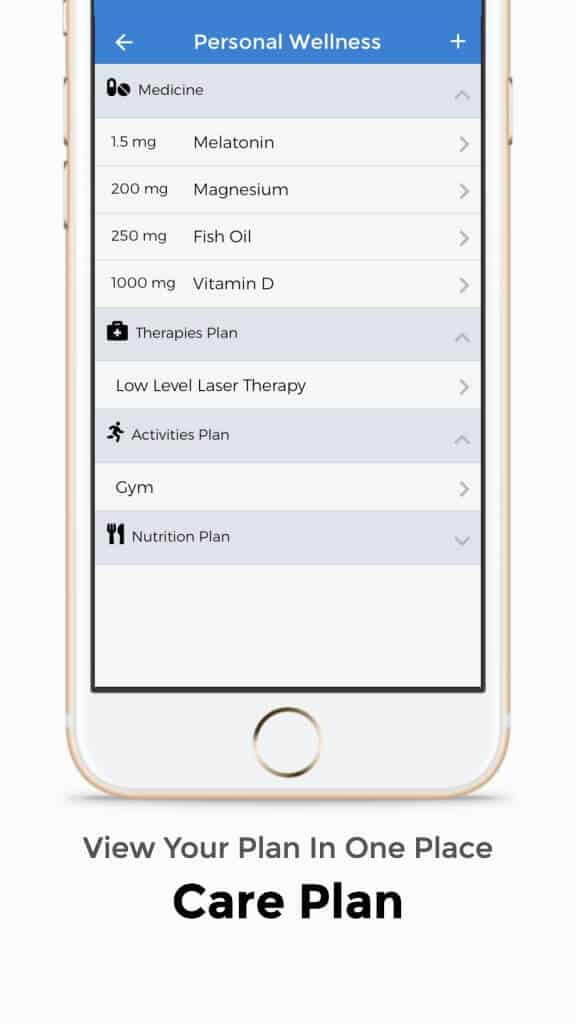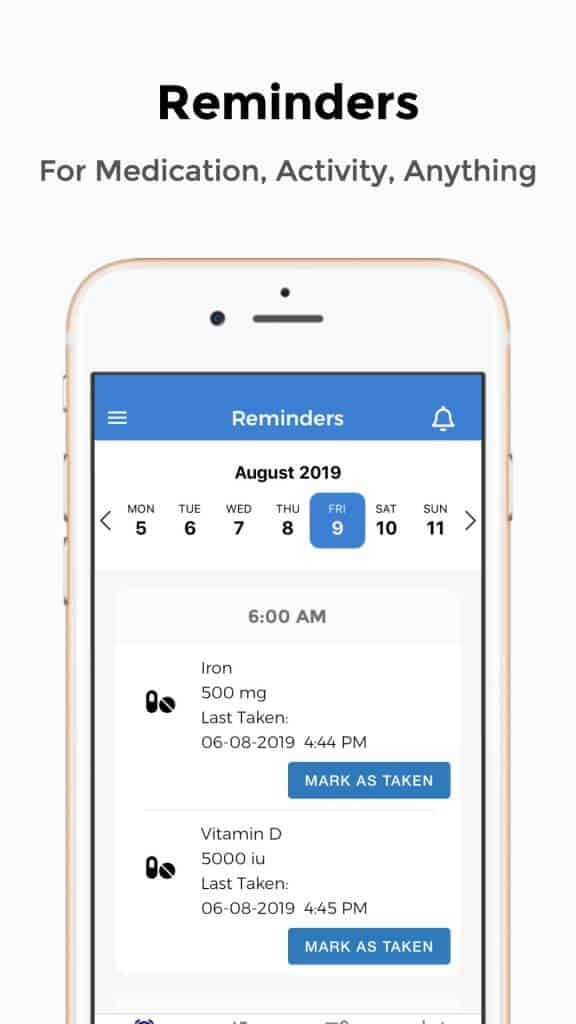
All over the world, there are millions of women who have an unfulfilled desire for children. This can place a lot of pressure on both partners, affecting the overall quality of life in a negative manner. Often times, the cause behind such difficulties is the condition known as Hashimoto’s thyroiditis. This is an autoimmune condition, in which the immune system practically attacks the thyroid gland.
If you are having difficulties conceiving, you might want to ask your doctor about this condition as the potential root cause. There are many women who have visited all sorts of specialists, hoping they will finally be able to enjoy the privilege of becoming mothers. Unfortunately, the diagnosis of Hashimoto’s thyroiditis is rarely thought as the first cause of infertility.
Aside from infertility, Hashimoto’s thyroiditis can cause one to experience low levels of energy, as well as weight gain and hair loss. Women might suffer from hormonal imbalances and cycle disruption. In the situation that one does manage to conceive, the risk of miscarriage is considerably higher.
If you have already been diagnosed with Hashimoto’s thyroiditis, and you are experiencing difficulties getting pregnant, you should visit a specialist. The fertility doctor can point you in the right direction, providing you with treatment solutions that are meant to increase your chances of having a baby.
Hashimoto’s thyroiditis, a hormonal imbalance that affects fertility
For a woman to become pregnant, it is necessary that the levels of thyroid hormones (T3 and T4) are within normal limits. These influence every part of the menstrual cycle, including the ovulation. Moreover, when a woman has conceived, they will play a role on the functioning of the corpus luteum, the embryo implantation and the development of a healthy placenta.
The diagnosis of Hashimoto’s thyroiditis is associated with a clear hormonal imbalance. This is the result of an autoimmune reaction, in which the thyroid is attacked by the immune system. This leads, in turn, to the chronic inflammation of the thyroid gland.
It is essential to understand that not all women who suffer from this condition might experience fertility issues. However, pregnancy in these cases is associated with a higher risk of complications.
If you are interested in getting pregnant, one of the first things to do is visit an endocrinologist. The specialist will investigate the function of the thyroid gland, determining the levels of your thyroid hormones and the associated thyroid antibodies.
A complete blood count might reveal values that can indicative of Hashimoto’s thyroiditis. For example, if you experience high levels of prolactin and testosterone, as well as low levels of estradiol and progesterone, you might suffer from this condition. And it is a known fact that progesterone deficiency is associated with fertility issues.
Pregnancy is possible despite Hashimoto’s thyroiditis
Just because you have been diagnosed with Hashimoto’s thyroiditis, this doesn’t mean you cannot get pregnant. What matters is that the diagnosis is confirmed, so that you can take things to the next level and manage your condition for a healthy and successful pregnancy.
Treatment is necessary for this type of thyroiditis, with synthetic hormones being prescribed to counteract the thyroid hormone deficiency. Keep in mind that this is an autoimmune condition, in which the immune system attacks the thyroid gland. In time, this leads to chronic inflammation and the actual destruction of the thyroid tissue.
While other autoimmune conditions can be treated with immunosuppressant medication and cortisone, such treatments are not recommended for Hashimoto’s thyroiditis. The effectiveness of these drugs has not been confirmed for this diagnosis. Moreover, women who are trying to conceive and those who are already pregnant should refrain from taking this medication.
A healthy lifestyle has a positive influence on the autoimmune reactions associated with Hashimoto’s thyroiditis. Supplements, especially those that contain selenium and zinc, have a beneficial effect on the functioning of the immune system. They can relieve inflammation and improve the uptake of thyroid hormones, having a positive influence on fertility as a result. It is important to track and monitor how these supplements are affecting you, you may do so using CareClinic.
How is Hashimoto’s thyroiditis treated?
 In the situation that you suffer from hyperthyroidism and you are interested in conceiving, the treatment might initially consist of partial thyroid hormone inhibitors. The anti-thyroid treatment can include but is not limited to propylthiouracil, thiamazole and carbimazole. In deciding on the treatment for your individual case, the physician will take into account your age, desire to conceive, medical history and co-existent conditions.
In the situation that you suffer from hyperthyroidism and you are interested in conceiving, the treatment might initially consist of partial thyroid hormone inhibitors. The anti-thyroid treatment can include but is not limited to propylthiouracil, thiamazole and carbimazole. In deciding on the treatment for your individual case, the physician will take into account your age, desire to conceive, medical history and co-existent conditions.
If you are already pregnant and suffering from Hashimoto’s thyroiditis, you might be prescribed such medication in a low dose. However, the treatment with anti-thyroid medication is not always necessary. In fact, it is reserved only for the cases of pronounced hyperthyroidism. During pregnancy, the administration of this treatment in regular or high doses can lead to malformations, miscarriage or premature birth, as well as placental detachment.
Mild cases of thyroiditis do not require treatment but the levels of thyroid hormones should be carefully monitored, in order to ensure that the condition does not progress. In the situation that these are out of the normal range, the doctor can adjust the medication accordingly.
There is also the case of hypothyroidism, with the thyroid gland failing to produce adequate levels of thyroid hormones. In turn, this affects the functioning of the ovaries and clearly fertility. For this reason, it is important to restore the normal levels of thyroid hormones, as this will increase the chances of conceiving.
When the thyroid gland fails to produce adequate levels of hormones (T3 and T4), the pituitary gland will release high quantities of thyroid-stimulating hormone in response. The high levels of TSH will cause the prolactin levels to increase as well, which will prevent one from getting pregnant. The treatment, in this case, is represented by synthetic thyroid hormones (substitute or hormone replacement therapy).
If you are pregnant and suffer from hypothyroidism, you might also be recommended to take iodine supplements. This is essential so as to prevent developmental defects in the growing fetus. Use our pill reminder app to manage your medication.
Getting treated for hypothyroidism is a must during pregnancy. If no treatment measures are taken, the child can suffer from cognitive delay due to impaired brain development. The growth and general development can be affected as well.
Levothyroxine & iodine supplements, standard treatment for a healthy pregnancy in case of Hashimoto’s thyroiditis
Pregnancy is a period of major changes, with the growing baby requiring a lot of nutrients, vitamins and minerals. Not many people think about this fact but the baby also requires adequate levels of hormones in order to thrive and develop.
Iodine supplements are administered, for example, with a purpose. During pregnancy, the hormone beta-hCG increases, this being a sign of healthy development. However, in order for this hormone to stimulate the functioning of the thyroid gland and the subsequent production of thyroid hormones, larger quantities of iodine are needed.
Even though iodine supplements are recommended during pregnancy, you should talk to your doctor before taking any supplement. Only a specialist physician can determine how much iodine is necessary. A dose that is too high can cause goiter in the baby.
During pregnancy, regular blood tests must be made, so as to check for the presence of thyroid antibodies. If these are detected, then the treatment for a complication-free pregnancy should include both iodine supplements and levothyroxine. Both are safe to use and bear no risk for the growing fetus. Your doctors – endocrinologist, gynecologist – can work together to ensure the best treatment plan for your needs.
The diagnosis of Hashimoto’s thyroiditis should not be perceived as something terrible. It is possible to experience a pregnancy free of complications and fulfill your desire for children, as long as you are looking after yourself and visit the doctor for adequate management.
CareClinic helps manage both Hashimoto’s thyroiditis during pregnancy
The CareClinic health app can be employed as a valuable tool for managing every aspect related to Hashimoto’s thyroiditis and also to your pregnancy. You can benefit from its different features, keeping track of various manifestations, recording your levels of thyroid hormones and listing various treatments or supplements as part of your treatment plan.
The application is available on both iOS and Android smartphones, and there is also a web version that can be used. It allows one to record the symptoms of thyroid disorders, along with the treatment solutions that worked the best.
At the end of each month, the application offers a report with regard to your progress. You can share this report with your physician and, thus, get a clear insight into your current health status.
 The adequate management of Hashimoto’s thyroiditis will help you maintain a healthy pregnancy, free of complications. As the same time, you can use the app to improve your lifestyle overall, and be more active. Keep in mind that the symptoms caused by this condition can be ambiguous, so using an application to keep track of each and every manifestation is definitely recommended.
The adequate management of Hashimoto’s thyroiditis will help you maintain a healthy pregnancy, free of complications. As the same time, you can use the app to improve your lifestyle overall, and be more active. Keep in mind that the symptoms caused by this condition can be ambiguous, so using an application to keep track of each and every manifestation is definitely recommended.
Aside from your symptoms, you can trust CareClinic’s health app to record various health measurements. These can include your weight, as well as blood pressure and the levels of other hormones. If you are taking medication, you can rely on the application to set up reminders. These reminders will ensure the necessary medication adherence, so that you can keep your hormone levels within healthy limits and enjoy a healthy pregnancy.
It is also worth mentioning that the health app is developed in accordance with the feedback provided by users, so as to meet the needs of women who suffer from Hashimoto’s thyroiditis and want to get pregnant.
Within the application, you will find a built-in journal, in which you can write your thoughts, feelings and emotions with regard to living with a chronic condition. This is an excellent emotional release, allowing you to keep anxiety and depression at a safe distance.
Statistics on Hashimoto’s thyroiditis
According to recent statistics, 5% of the worldwide population suffers from Hashimoto’s thyroiditis. The condition affects women in particular, especially the ones between 30 and 50 years of age. In fact, women are between five and ten times more likely to be diagnosed with this form of thyroiditis. It is also worth mentioning that the onset of the condition can be often identified in the first year upon giving birth.
In the United States, 1 in 5 people suffer from this condition. The presence of other autoimmune disorders, such as rheumatoid arthritis, increases the risk of thyroid dysfunction. Complications can occur due to the low levels of thyroid hormones, including hypercholesterolemia and heart disease. A rare complication, associated with untreated thyroiditis, is the myxedema coma. This is a medical emergency and it can become life-threatening if no treatment measures are taken.


